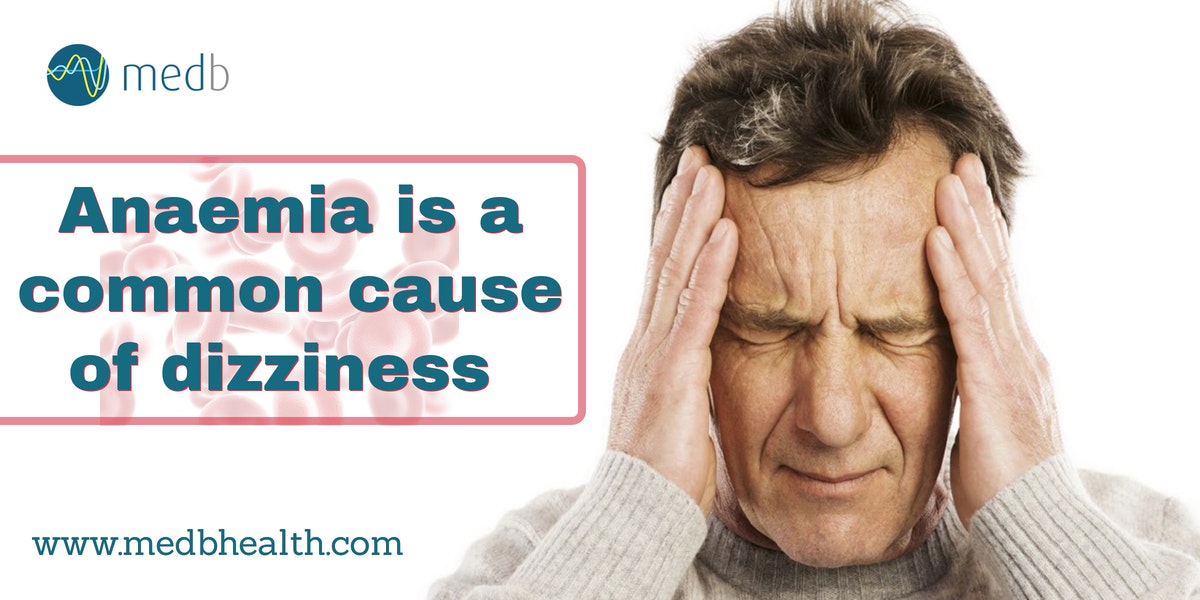Anaemia is a common cause of dizziness

The commonest cause of dizziness is a lack of oxygen supply to the brain due to low levels of haemoglobin, the pigment that gives blood its red colour.
Anaemia also results in poor oxygen supply to other parts of the body such as the muscles, however, when the brain is affected, it results in dizziness.
Haemoglobin must be above normal levels to provide adequate amounts of oxygen to the body.
Anaemia is said to occur when haemoglobin falls below acceptable levels of 14 – 17 g/dl for men and below 12-15 g/dl for women. Nevertheless, these levels reflect the average, and many people outside these values may still have normal haemoglobin levels.
Moreover, even when haemoglobin levels are within normal values, anaemia can still occur as there are other factors that determine oxygen supply to the cells such as the volume, size and shape of red blood cells.
The commonest cause of anaemia is the improper absorption of nutrients that help the body produce haemoglobin like iron, vitamin B12, Zinc, Copper and Manganese.
The deficiency of either one of these can lead to anaemia. Diseases of the stomach and gut will affect nutrient absorption.
People with long-standing diseases of the digestive system such as Crohn´s, Coeliacs or Chronic Constipation will have problems digesting or absorbing nutrients.
Many medications will hinder the absorption of nutrients including acid suppressants such as omeprazole, as well as antibiotics and painkillers.
Antibiotics also destroy beneficial bacteria, probiotics that help with food digestion and absorption and the production of vitamins. Some antibiotics like nitrofurantoin and anti-inflammatory drugs cause anaemia by directly destroying the haemoglobin.
Anaemia puts a strain on the entire body, especially the cardiovascular system–the heart and blood vessels. Low haemoglobin means the concentration of oxygen in the blood is lower than normal, and the heart has to work twice as hard to supply oxygen to the rest of the body.
The effect is an increased heart rate and blood pressure. With the heart struggling to meet up with demand, the rest of the organs will also be under strain. A consequence of the increased workload of the heart is tiredness.
Extreme anaemia will cause breathing problems as the lungs also work harder to inhale air. Inner ear disorders is a rare cause of dizziness, but many patients with anaemia are wrongfully diagnosed with this condition and treated with the prescription drug SERC, which has no effect on their condition.
The best treatment for anaemia is a comprehensive multivitamin and mineral formula. Iron and vitamin B12 are the most well-known nutrients for increasing haemoglobin levels, but other minerals are also important, including zinc, copper and manganese.
It is important to remember that taking supplements is not a substitute for a healthy diet of daily fresh vegetables and fruits. Take a Scan Now! Visit www.medbhealth.com/the-process to get started.
#MedB #MedBHealth #MedBMag #HealthyLiving #NaturalTherapy #WisdomWednesday #MedBScan #MedBShop
Previous
- Take The Quiz: How much do you know about cholesterol?
- 12 Reasons Why A MedB Health Screening is Superior to A Doctor's Visit
- Food and Nutrition Quiz
- Colloidal Silver: The Universal Antibiotic
- Grey Hair can also point to Nutrient Deficiencies, Severe Stress or even Chronic illnesses
- Inflammation Cause Body Pain
- Norovirus: Treatment and Prevention
- 5 Serious Health Problems Caused By Magnesium Deficiency




